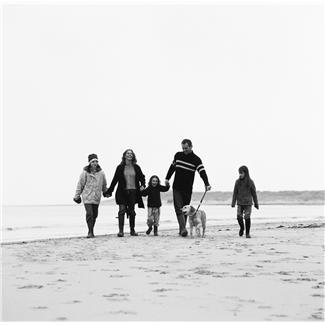Pet Ownership (Ir)Responsibility Affects Communities
 Experts estimate 60% of Americans own pets. Many people have more than one animal in their household. Having a pet is a major responsibility. Like children, dogs, cats, rabbits, hamsters, birds, and fish rely on a person (or two) to take care of them, to provide food, water, shelter, exercise, medical care, and time/attention.
Experts estimate 60% of Americans own pets. Many people have more than one animal in their household. Having a pet is a major responsibility. Like children, dogs, cats, rabbits, hamsters, birds, and fish rely on a person (or two) to take care of them, to provide food, water, shelter, exercise, medical care, and time/attention. What does it mean to be a responsible pet owner? A responsible pet owner ensures his/her pet has plenty of fresh water during all seasons of the year as well as good, nutritious food. Responsibility also includes adequate shelter throughout all seasons – warmth in winter, shade in summer, and protection against rain, wind and other elements all year. Vaccinations, spaying and neutering, and other medical care are also critical as is exercise. Pet owners also need to provide their animals with time and attention. Dogs especially need their owner's fondness and dedication; as pack animals, dogs respond and rely upon their people for attention and they desire human companionship. Cats, too, enjoy the company of their humans. Bringing a pet home and then ignoring it is not only irresponsible but it's also cruel. If you and your family are not ready to commit to having a pet, best not to get one until you can give the animal the time and care it needs.
Pet ownership responsibility also includes obeying a community's animal ordinances. Leash laws are in effect for several reasons, including the pet's safety and the safety of all community residents. Stray dogs and cats can create community hazards, and unaltered animals add to a community's abundance of dogs and cats. Pet overpopulation is rampant, as evidenced by the numbers of feral cats throughout the country. Feral, or community cats, are often unwelcome in towns even though they can curb rodent populations. Stray animals pose problems for community leaders and animal shelter personnel.
Animal welfare experts estimate that seven to eight million dogs, cats, puppies and kittens come into animal shelters annually around the United States. Nearly half of these animals are killed – that’s three to four million pets! Countless others are abandoned, left to fend for themselves – most often, these animals also die, from starvation, disease, attacks by other animals, or being run over by vehicles.
Pet ownership responsibility (or irresponsibility) affects not just pets, individuals, and families, but also communities. Pet overpopulation is just one issue, but it's a problem that can be solved – through responsibility. In summer, animal shelters and rescues are bombarded with litters of kittens and puppies. Abandoned and stray animals are also taken in. Animal shelters and rescue organizations become overwhelmed with the number of pets brought to them, both adults and youngsters. One way to help your community is through pet adoption – adoption is another way to be a responsible pet owner. Sadly, national statistics show that only 25% of people who add a pet to their home adopt from rescue organizations and animal shelters. We can change that statistic, and many others.
Together, we can make a greater impact upon our communities by being responsible pet owners, including adopting a next pet. June is National Adopt a Shelter Cat Month – consider adopting from your local shelter this month – you could be saving a life (or two).
Do all you can to be a responsible pet owner and positively impact your community … and teach the next generation that same value.
Published on June 17, 2015 15:33
No comments have been added yet.



